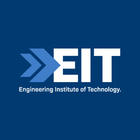52896WA Advanced Diploma of Civil and Structural Engineering (Materials Testing)
52896WA Advanced Diploma of Civil and Structural Engineering (Materials Testing)
This course prepares students to competently test and select construction materials for a range of projects, including bridges, roads, tunnels, and commercial and domestic structures. Students will become familiar with the attributes of conventional and emerging materials. They will also study the relevant industry standards, and the necessary quality controls…
Categories
COURSE DESCRIPTION
This course prepares students to competently test and select construction materials for a range of projects, including bridges, roads, tunnels, and commercial and domestic structures. Students will become familiar with the attributes of conventional and emerging materials. They will also study the relevant industry standards, and the necessary quality controls across construction applications.
The civil construction sector is responsible for all infrastructure and building projects and therefore plays an important role in global economies. To reduce the environmental impacts of these projects the use of eco-friendly construction materials and practices are becoming increasingly important.
Materials testing is a vital aspect of sustainable construction practices; it helps to ensure that construction projects use materials that are environmentally responsible, energy-efficient, and long-lasting. Furthermore, to conserve natural resources and reduce waste, it helps in the identification of materials that can be recycled or reused.
Course Details
This course investigates the properties of construction materials, it considers the principles which underpin a range of construction projects, and looks at the associated technical documentation. On completion of the course a graduate will have the capacity to compare materials and practices for sustainability and for the optimal development of buildings and infrastructure.
The delivery methodology — live and interactive webinars with the use of state-of-the-art technologies (including remote and virtual laboratories and simulation software) — ensure you graduate with cutting-edge skills that are valued by employers around the world.
Graduates of the Advanced Diploma of Civil and Structural Engineering (Materials Testing) will have the capacity to:
Compare and select various construction materials (concrete, steel, timber, asphalt, soil, and aggregates);
Understand the physical and chemical properties of construction materials, such as strength and durability;
Use a range of material tests, including compressive and flexural tests, and soil characterisation;
Analyse and interpret test results;
Create reports that effectively communicate the test results to project managers, engineers, and other stakeholders;
Apply relevant industry regulations and standards which relate to construction materials testing;
Consider quality control procedures for construction materials and ensure that they meet the required standards and specifications;
Understand the importance of the properties of materials for structural and non-structural applications in accordance with the best practices of sustainability in construction.
REQUIREMENTS
Student applications are considered on a case-by-case basis and the following minimum entry requirements are to be strictly adhered to:
Applicants must have at least an Australian Year 12 or Cert III trade qualification (or equivalent) in a related field;
AND
They must have at least 2 years’ work experience in a related field
OR
At least 4 years’ work experience in a related field – subject to acceptance of an application for Credit to Entry
AND
Satisfactory English language proficiency at an English pass level in an Australian Senior Certificate of Education (or equivalent); OR
A specified level of achievement in a recognised English language test such as IELTS (or equivalent) at a score of at least 5.5 (with no individual band score less than 5.0), or equivalent; OR
Satisfactory completion of another course offered by EIT, or by another tertiary institution, in English.
EDUCATIONAL INSTITUTION
The Engineering Institute of Technology (EIT) delivers industry driven programs to equip its students with the skills required in the real industrial world. Its study options are available across Perth and Melbourne; and include classroom sessions, practical lab exercises, assessments, class discussions and self-study. Additionally, students enjoy access to industry experts based around the globe through live and interactive online presentations. All EIT programs provide access to remote laboratories and cutting-edge simulation software. Hands-on laboratory practicals are an essential component of EIT’s programs to ensure students put theory into practice. These hands-on workshops cover the major discipline-specific applied skills required for competency in engineering practice.




